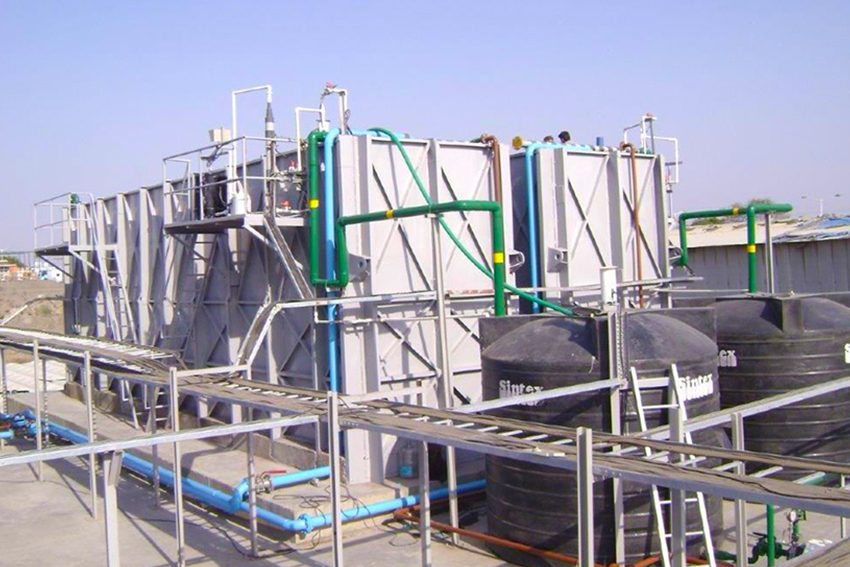Industries must dispose of their wastewater properly, considering the growing environmental awareness and the stricter pollution control laws. An Effluent Treatment Plant (ETP) helps in using its prime position to treat the industrial effluents before letting them into the environment. SDES is a company that designs, manufactures, and executes custom ETP solutions focused on the specific needs of your industry.
What is an Effluent Treatment Plant?
An Effluent Treatment Plant is a treatment facility that treats industrial wastewater so that toxic components, solids, and other pollutants can be removed. The treated water is either reused inside the premises or is discharged into the environment safely, complying with the regulations. ETPs are very important for various industries like textiles, chemicals, pharmaceuticals, food processing, etc.
Importance and Needs of ETP in Industries
An ETP plant is not just a compliance requirement but an investment for sustainability. That is the reason every industry needs a good ETP system:
- Regulatory compliance: being in accordance with CPCB/SPCB norms for wastewater discharge.
- Environmental protection: Preventing water bodies and soil contamination.
- Water reuse: Treating and recycling water for non-potable application in industries thereby minimizing direct dependence on fresh water sources.
- Cost savings: Long-term reduction in penalties, water bills, and treatment cost.
- Reputation: Way of showing commitment towards CSR and green practices.
Working of an ETP Plant
Typically, the working of an ETP plant comprises the following stages:
1. Preliminary Treatment
Removal of coarse solids, grit, and oil using bar screens, grit chamber, and oil skimmers.
2. Primary Treatment
Resulting settling tanks (primary clarifiers) which remove suspended solids and reduce BOD (Biochemical Oxygen Demand).
3. Secondary Treatment
Biological processes where aerobic or anaerobic microorganisms digest organic matters.
Technologies are considered to be Activated Sludge Process (ASP), Moving Bed Biofilm Reactor (MBBR), or Sequential Batch Reactor (SBR).
4. Tertiary Treatment
Final steps of filtration, disinfection (UV/chlorine), and polishing treated water with chemical dosing.
5. Sludge Management
Dewatering and safe disposal or reuse of the biological or chemical sludge.

Customized ETP Solutions - SDES
At SDES, we design and execute tailor-made ETP systems based on your industry type, effluent load, and discharge standards.
- Compact and modular designs
- Energy-efficient operations
- Easy maintenance
- Complete automation (SCADA/PLC options)
- Guaranteed performance output
Operation & Maintenance Services for ETP Installations
Beyond the installation aspect, we have a complete package of Operation and Maintenance (O&M) services for ETPs offered by SDES. Our expert technicians ensure smooth functioning on a day-to-day basis, timely chemical dosing, monitoring of key parameters such as pH, BOD, and COD, as well as regular reporting.
Consultancy services for ETP compliance
Our environmental consultancy services assist industries right from the preliminary stages, such as feasibility studies and environmental audits, and also in obtaining CTE/CTO from pollution control boards.
Explore our Consultancy Services
Benefits of Choosing SDES for ETP Over a decade experience in pollution control systems
- Turnkey solutions, from designing to commissioning
- Manufacturing high-quality equipment
- In-depth understanding of CPCB and SPCB norms
- On-site training and post-installation support
Industries We Serve
- Pharmaceuticals
- Textiles, Dyes and Dyestuffs
- Food and Beverages
- Chemicals and Fertilizers
- Pulp and Paper
- Automotive and Engineering
Conclusion
An Effluent Treatment Plant is of utmost importance in the direction of sustainable and responsible industrial operations. We at SDES empower industries to attain effective yet compliant at a very low price ETP solutions. In protecting the environment, we ensure that an industry meets the legal standards and also contributes towards a greener tomorrow.
Ready to install an ETP system?
→ Contact SDES for a Free Site Visit